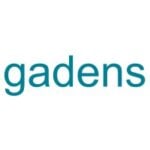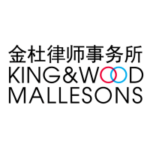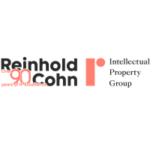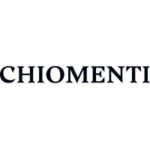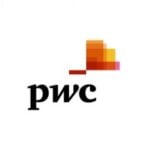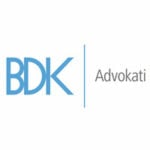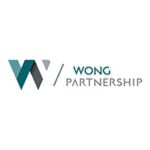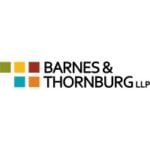-
Please briefly summarize your country's legislative framework for medicinal products (including biologicals), medical devices, food, and food supplements
Regulated medicinal products, pharmaceutical substances, and related products—including cosmetics, poisonous substances and preparations, contraceptives, tattoo products—along with medical devices, human-derived products and elements (such as human blood, organs, tissues, and cells), foodstuffs intended for special medical purposes, and dietary supplements, are governed by the legal and regulatory provisions of the Public Health Code. These provisions define, depending on the type of product, the conditions for their manufacture or procurement, use, advertising, safety, as well as the monitoring of adverse effects (pharmacovigilance, materiovigilance, reactovigilance, and nutrivigilance).
The legal and regulatory provisions of the Social Security Code primarily establish the reimbursement criteria under health insurance for certain of these products, the determination of their reimbursement rates, and the conditions of their use required for coverage by health insurance.
Foodstuffs are mainly governed by the legal and regulatory provisions of the Consumer Code, which regulate their production, marketing, storage, labeling, and consumer information requirements.
These codified legal and regulatory provisions may also be supplemented by additional laws and regulations (decrees, ministerial orders, and decisions from public health authorities) that are not included in the aforementioned codes. For instance, dietary supplements are governed by Decree No. 2006-352 of March 20, 2006, concerning dietary supplements.
The regulation of these products is largely the implementation of European directives and regulations.
-
With regards to medicinal products and medical devices, how is the regulatory process structured in your jurisdiction from R&D through market approval until post-marketing vigilance, and what rules does it follow? Please briefly describe.
Regarding medicinal products, and independently of the European marketing authorization procedures (mutual recognition procedure, decentralized procedure, and centralized procedure), the national marketing authorization (Autorisation de Mise sur le Marché, AMM) is granted by the French National Agency for the Safety of Medicines and Health Products (ANSM) after the completion of three phases. It should be noted that there are expedited authorization procedures for innovative and/or urgent medical treatments (early access or compassionate use authorizations).
- Phase I primarily assesses the drug’s tolerance, defining the appropriate dosage and frequency of administration.
- Phase II aims to confirm the efficacy of the treatment in addition to its safety. This phase ensures that the benefit-risk ratio is favorable and does not lead to significant adverse effects.
- Phase III involves a comparative evaluation of the drug’s efficacy and safety against either a reference treatment or a placebo if no standard treatment exists.
Clinical studies conducted during phases II and III are strictly regulated and must adhere to ethical standards, ensure effectiveness, obtain informed consent from participants, and implement rigorous monitoring to guarantee patient safety.
- Phase IV, which occurs post-marketing authorization, involves the continued observation of the drug’s efficacy and tolerance under real-world conditions.
The marketing authorization (AMM) is initially granted for a renewable period of five years.
French law has established a pharmacovigilance system overseen by the ANSM and regional pharmacovigilance centers. This system collects information from healthcare professionals, patients, patient associations, and pharmaceutical laboratories regarding adverse drug reactions. It also facilitates corrective measures such as label modifications, product recalls, or preventive actions.
Medical devices are classified into four categories (Class I, IIa, IIb, III) based on their potential health risks. Before being placed on the market, these devices must go through several stages, including:
- Definition of design requirements
- Prototyping
- Preclinical and clinical investigations
- Validation of manufacturing processes
- Finalization of technical documentation
Except for Class I devices, all medical devices must undergo a CE marking procedure, which ensures compliance with essential health and safety requirements. To obtain CE marking, the manufacturer must provide technical documentation demonstrating the quality and safety of the device. A notified body (an authorized certification entity) then issues a certificate of conformity, allowing the manufacturer to affix the CE mark to the device.
Similar to pharmaceuticals, a materiovigilance and reactovigilance system (for in vitro diagnostic medical devices) has been established to monitor incidents or risks of serious incidents related to medical devices. This system is managed by ANSM in collaboration with regional coordinators for materiovigilance and reactovigilance.
-
What is the regulatory process for food supplements, from first notification to the competent authorities until post-marketing vigilance in your country, and what regulations are applicable here? Please briefly describe.
In French law, dietary supplements are regulated by Decree No. 2006-352 of March 20, 2006, which establishes the rules governing their composition, labeling, and the procedures applicable to declarations and authorization requests for their use.
Two types of declarative procedures are provided for with the Minister in charge of Agriculture, depending on whether the dietary supplement contains:
- A substance with a nutritional or physiological purpose, or
- A plant or plant preparation listed in ministerial orders.
A marketing authorization refusal may be justified by scientific evidence demonstrating that the product poses a health risk or due to the absence of the required documents and information in the application submitted to the Ministry of Agriculture.
Furthermore, post-marketing surveillance is ensured through a nutrivigilance system, which monitors and reports adverse effects to safeguard consumer safety.
-
What are the ongoing obligations in your country after a marketing authorization for medicinal products has been obtained or a conformity assessment been carried out for medical devices?
For a marketing authorization (AMM), the manufacturer is required to implement the authorization within three years, failing which it becomes null and void.
Furthermore, as previously mentioned, medicinal products are subject to post-marketing surveillance througha pharmacovigilance system, and Phase IV clinical trials, which monitor the drug’s efficacy and safety under real-world conditions.
Manufacturers must establish a risk management system and oversee the effectiveness of risk mitigation measures as outlined in the dedicated Risk Management Plan (RMP). Issues related to efficacy and/or safety may lead to regulatory authorities imposing modifications (e.g., adding a new adverse effect to the label) or the pharmaceutical company itself initiating changes, such as following a pharmacovigilance report.
In serious cases, health authorities may impose a suspension or withdrawal of the drug from the market. Conversely, the manufacturer may request an extension of the scope of its AMM, particularly based on data obtained from post-marketing surveillance.
Medical devices are subject to specific regulatory requirements based on their risk classification for patients or users (Class I, IIa, IIb, III). These classifications determine post-market surveillance obligations.
For instance, Class III medical devices, which pose the highest risks to patients, are subject to:
- Stricter post-market surveillance requirements,
- More in-depth post-market clinical follow-up studies, and
- Regular inspections of manufacturers to ensure compliance with essential safety requirements and continued market conformity.
This post-market surveillance system is a key component of the manufacturer’s quality management system. The post-market surveillance documentation (including the Post-Market Surveillance Plan) varies depending on the device classification and associated risk level.
-
Which are the competent national authorities having the regulatory oversight over medicinal products, medical devices, food, and food supplements and what are their respective responsibilities?
Medicinal products and medical devices fall under the jurisdiction of the French National Agency for the Safety of Medicines and Health Products (ANSM), which is responsible for their monitoring, evaluation, and regulatory enforcement.
The French National Authority for Health (HAS) also plays a role in regulatory oversight, as it assesses medicinal products and medical devices. It may require pharmaceutical laboratories and medical device manufacturers to submit an application for re-evaluation to determine whether the product should remain eligible for reimbursement. These decisions are made based on:
- The opinion of the Transparency Committee (CT) for medicinal products, and
- The opinion of the National Commission for the Evaluation of Medical Devices and Health Technologies (CNEDiMTS) for medical devices.
Foodstuffs and dietary supplements fall under the jurisdiction of the French Agency for Food, Environmental and Occupational Health & Safety (ANSES).
A single health authority for food safety inspections has been placed under the responsibility of the Minister of Agriculture and Food Sovereignty, as established by Decree No. 2022-840 of June 1, 2022.
These authorities have a duty of evaluation, monitoring, and surveillance concerning medicinal products, medical devices, foodstuffs, and dietary supplements. They also have regulatory enforcement powers in cases where a product presents a health risk to users.
Their liability may be engaged in two key scenarios:
- Failure to take action against a dangerous or potentially dangerous product despite having relevant evidence.
- Wrongful regulatory action—i.e., imposing unjustified restrictions or sanctions without meeting the legal conditions required for such measures.
In the latter case, manufacturers may take legal action against the authority to seek liability for unjustified regulatory measures that negatively impact their products.
-
Please briefly describe the procedure of challenging regulatory decisions (e.g., denial of marketing authorization) made by the competent regulatory authority in relation to medicinal products, medical devices, and food supplements.
Adverse decisions taken by health authorities regarding medicinal products, medical devices, and dietary supplements—such as: Denial of marketing authorization (AMM) for a medicinal product, Refusal of reimbursement by health insurance for a medical device, orWithdrawal or suspension of the commercialization of a medical device—may be challenged through various legal remedies.
Administrative Appeals
Initially, affected parties may file an administrative appeal:
- A gracious appeal (recours gracieux): A request for the withdrawal or modification of the decision addressed to the same authority that issued it.
- A hierarchical appeal (recours hiérarchique): A request for the decision to be reviewed by the superior authority of the decision-maker, when such an appeal is possible.
Judicial Appeals: Annulment Proceedings
If administrative appeals fail, the decision may be challenged before the administrative courts, including: Administrative tribunals, or The Council of State (Conseil d’État) for decisions taken by higher administrative authorities.
These actions, known as recours en annulation (annulment proceedings), seek to overturn the regulatory decision on legal grounds.
Emergency Proceedings: Suspension of the Decision
Since these appeals do not automatically suspend the enforcement of the contested decision, applicants may, in urgent cases, file an interim relief application for suspension (référé suspension). This legal mechanism allows for the temporary suspension of the decision’s effects pending a final ruling on the merits of the case.
-
Please briefly describe the legal framework and the relevant regulatory procedure (e.g., application process, requirements, approval, denial) that applies in your jurisdiction to clinical trials for medicinal products and medical devices.
Medicinal products, medical devices, and dietary supplements may be subject to clinical trials aimed at evaluating their efficacy and tolerability in a limited group of voluntary participants, under the supervision of the French National Agency for Medicines and Health Products Safety (ANSM). These trials are governed by the Public Health Code, which establishes different rules depending on the category of the trial, classified according to the nature of the intervention and the level of risks and constraints imposed on study volunteers.
The first category encompasses interventional research involving an intervention on the participant that is not justified by their standard medical care.
The second category includes interventional research that entails only minimal risks and constraints, as defined by a decree issued by the Minister of Health, following the opinion of the ANSM’s Director-General.
The third category pertains to non-interventional research, which involves no risk or constraint, where all procedures are performed, and products are used in accordance with routine practice.
A clinical trial involves a sponsor, who initiates and funds the trial; an investigator, a healthcare professional responsible for organizing and conducting the trial; and patients or healthy volunteers who participate in the study. Clinical trials in the first category require authorization from the ANSM, which ensures that all conditions, particularly those related to participant safety, are met.
All three categories of clinical trials must also obtain a favorable opinion from the Committee for the Protection of Persons (CPP), which ensures that participants’ rights—such as information, consent, and data confidentiality—are respected. Finally, clinical trials are conducted under the supervision and control of the ANSM, which has the authority to modify, suspend, or prohibit a trial at any time if the initial conditions are no longer met and/or if participant safety is at risk.
-
Is there a public database for clinical trials in your country, and what are the rules for publication?
The creation of a public database for clinical trials was only implemented very recently, following the launch in early 2023 of work to develop a minimum viable product (MVP) titled ECLAIRE (Essais CLiniques Accessibles Interconnectés pour la Recherche ouverte à l’écosystème), which serves as a national database for clinical trials accessible to both public and private stakeholders. The ECLAIRE open API is now operational and provides access to data declared by sponsors across the various categories of clinical trials. However, the database still requires enhancement through the addition of supplementary fields to ensure completeness.
Regarding the publication rules for clinical research data, the regulatory framework is primarily derived from European Union law. The French Public Health Code only stipulates that research involving human participants and their results must be recorded in a publicly accessible registry according to rules set forth by a decree, which, to date, has never been issued.
This area is predominantly governed by the French Data Protection Authority (CNIL), which, in two deliberations dated May 3, 2018 (Nos. 2018-153 and 2018-154), approved a reference methodology for the processing of personal data in health research. These deliberations establish the applicable legal framework for handling data in studies requiring or not requiring explicit participant consent. The regulations cover various aspects, including: Purpose of data processing, Origin and nature of the processed data, Recipients of personal data, Publication of research results, Information and rights of research participants, Data retention periods.
Additionally, these rules extend to research professionals, addressing similar obligations, as well as compliance requirements concerning data security, implementation procedures, data transfers outside the European Union, subcontracting, and the principle of accountability in clinical research governance.
-
Please briefly summarize the rules that must be observed in your jurisdiction when using data from clinical trials?
The use of a patient’s pre-existing health data collected prior to their participation in a clinical trial is carried out only after obtaining their informed and explicit consent, in compliance with the General Data Protection Regulation (GDPR) and the French Public Health Code. Notably, these regulations specify that if a participant withdraws their consent, such withdrawal does not affect the use of data obtained based on the informed consent given prior to withdrawal.
Regarding the potential reuse of personal data from a clinical trial, the French Public Health Code stipulates that the sponsor may request, at the time of obtaining the participant’s informed consent (when required), that they agree to the future use of their data for subsequent research, exclusively for scientific purposes.
Additionally, a report on the use of real-world health data in clinical research was published in May 2024 at the request of the French government. This report provides a comprehensive overview, an analysis of current practices, and recommendations aimed at promoting the use of real-world health data in clinical research.
-
Are there any trends and/or legislative proposals in your country on digitizing the process of conducting clinical trials (e.g., digitalization of the application process, decentralization of clinical trials)?
The digitization of clinical trials, which involves the dematerialization of procedures, became necessary due to the impact of the COVID-19 crisis on the conduct of clinical trials.
A recommendation issued by the European Commission on December 13, 2022, concerning decentralized clinical trials, highlighted the critical role of digital tools in modernizing trials, including e-information, e-consent, electronic signatures, and telemedicine. It also underscored the importance of decentralized clinical trials, particularly those conducted at the patient’s home. However, this recommendation has not yet been followed by any legislative or regulatory measures.
In 2023, the National Committee for Research Involving Human Participants (CNRIPH) and the Health Innovation Agency (AIS) incorporated certain elements from the European recommendation into their work, particularly regarding: The use of decentralized locations for trials, The responsibilities of investigators in decentralized settings, Digital information and consent, Dispensing and delivery of investigational medicinal products in decentralized trials, Data collection and management in digital trials, Remote monitoring of participants.
More recently, a six-month pilot phase was launched by the Directorate General for Health (DGS), the Directorate General for Healthcare Provision (DGOS), the French National Agency for Medicines and Health Product Safety (ANSM), and the French Data Protection Authority (CNIL).
This pilot program involves selected sponsors conducting studies within projects of national interest, and the results will provide feedback and insights to support the development of a legal or regulatory framework that takes into account European recommendations for the implementation of decentralized and digitized clinical trials.
-
What are your country's legal requirements for the authorization of manufacturing plants for medicinal products, medical devices, food, and food supplements? Please briefly describe.
Regardless of their status—whether as manufacturers/importers, operators, or distributors—pharmaceutical establishments are subject to prior authorization from the French National Agency for Medicines and Health Product Safety (ANSM). The authorization application dossier must include detailed information on the implementation of pharmaceutical operations carried out within the facility, particularly regarding personnel and infrastructure. Authorization is granted if all technical operating conditions, as required by regulations, including an ANSM decision dated October 1, 2019, are met. Furthermore, any substantial modification to the original authorization requires prior approval, whereas minor modifications only necessitate a declaration.
Medical Devices
Manufacturers and distributors of medical devices must declare their activity to the ANSM, in addition to fulfilling requirements such as:
- Declaring their materiovigilance correspondent (responsible for post-market surveillance), and
- Registering the placement of medical devices on the market.
In cases where a manufacturer or distributor fails to meet certain technical operational conditions, compliance is ensured through strict quality and safety obligations applicable to medical devices.
Animal-Origin Food Products
Facilities involved in the production, handling, or processing of animal-origin food products for human consumption must comply with regulatory requirements based on their distribution model:
- If the products are sold directly to consumers, the facility must submit a declaration to the Departmental Directorate for Population Protection (DDPP) or the Departmental Directorate for Social Cohesion and Population Protection (DDCSPP).
- If the products are sold to other professionals, an official approval must be obtained from these authorities.
Dietary Supplements
For companies manufacturing dietary supplements, the regulatory pathway depends on the composition of the product, particularly regarding: Nutrients, Plants and Substances with nutritional or physiological purpose.
-
Please briefly describe the typical process of distributing medicinal products, medical devices, and food supplements in your country, encompassing, if applicable, the wholesale distribution of products.
The French Public Health Code stipulates that pharmaceutical establishments supply medicines to pharmacies for internal use (PUI) within healthcare facilities and medico-social establishments, as well as to community pharmacies. This distribution chain involves pharmaceutical establishments, wholesale distributors (grossistes répartiteurs), and depositaries (dépositaires).
- Wholesale distributors purchase medicines from manufacturers and primarily resell them to community pharmacies.
- Depositaries are responsible for the logistics of wholesale distribution, mainly supplying PUIs within public and private healthcare and medico-social establishments.
Public healthcare and medico-social establishments must comply with public procurement regulations when acquiring medicines.
On February 20, 2014, the ANSM issued a Good Distribution Practices (GDP) guide for wholesale distribution of human medicines, aimed at ensuring the quality of medicines throughout the supply chain. This guide sets forth obligations regarding quality management, including requirements for personnel, premises, and equipment.
Regarding the distribution of dietary supplements, distributors must ensure compliance with: Composition requirements, Labeling regulations, and Procedures for declarations and authorization requests, as outlined in Decree No. 2006-352 of March 20, 2006, which governs dietary supplements.
-
Please briefly describe the pricing and reimbursement rules, if any, for medicinal products, medical devices, and food supplements in your jurisdiction?
Medicinal Products
The pricing of medicines depends on whether they are reimbursed by health insurance:
- Non-reimbursable medicines: Their prices are freely set by manufacturers without any specific regulatory procedure.
- Reimbursable medicines: Their price is determined by the Economic Committee for Health Products (CEPS) through negotiations with the manufacturer. If no agreement is reached, the CEPS unilaterally sets the price based on various criteria, including: Improvement in medical service rendered (ASMR), Price of comparable medicines with the same indication, Projected sales volumes.
To be eligible for reimbursement, the French Social Security Code requires pharmaceutical companies to submit a reimbursement application to the Transparency Commission (CT) of the High Authority for Health (HAS). The CT evaluates the medicine based on: Medical benefit compared to existing treatments and Therapeutic improvement over equivalent drugs.
Based on the CT’s opinion, the Ministers of Health and Social Security decide whether the medicine will be reimbursed in community pharmacies and/or hospitals.Once the CEPS sets the price, the National Union of Health Insurance Funds (UNCAM) determines the reimbursement rate, primarily considering: Medical benefit of the drug and Severity of the treated condition.
For Non-reimbursable medical devices: Prices are freely set by manufacturers.
For Reimbursable medical devices: The French Social Security Code requires that their reimbursement be formally approved by the Ministers of Health and Social Security. They are listed on the List of Reimbursable Products and Services (LPPR), either: Generically, or By brand name.
Manufacturers must submit an application to the National Commission for the Evaluation of Medical Devices and Health Technologies (CNEDiMTS) of the HAS, which assesses the device based on criteria similar to those used for medicines. Pricing and reimbursement rates for medical devices follow the same process as for pharmaceuticals. Medical devices used in hospitals are generally included in hospital tariffs, except when listed separately for specific reimbursement.
For Dietary Supplements : Pricing is freely set by manufacturers. Dietary supplements are not eligible for reimbursement under the French health insurance system.
-
What legislative framework applies to the advertising for medicinal products, medical devices, and food supplements in your country?
The Public Health Code provides that advertising for medicinal products falls within the prerogatives of the ANSM (French National Agency for the Safety of Medicines and Health Products), which grants an advertising visa valid for two years, provided that the medicinal product complies with the Marketing Authorization (AMM) requirements and the therapeutic strategies recommended by the HAS (French National Authority for Health). The advertisement must present the medicine objectively to promote its proper use, must not be misleading, and must not harm public health protection.
Advertising to the general public is only permitted if the medicinal product is not subject to a medical prescription and if none of its formulations are reimbursable under the mandatory health insurance schemes.
The legal framework for advertising medical devices is also governed by the Public Health Code. The rules vary depending on the target audience (general public or healthcare professionals), the type of medical device, and whether it is reimbursable.
- Advertising to the general public is only allowed for Class I and IIa medical devices that are reimbursable. No prior approval from ANSM is required, but post-market surveillance
- For non-reimbursable medical devices, ANSM authorization (valid for five years) is required for those posing a significant risk to human health. Other non-reimbursable medical devices are subject to post-market control.
- Advertising to healthcare professionals for reimbursable and non-reimbursable medical devices requires ANSM authorization if the device is listed as posing a significant health risk. For all other medical devices, advertising is subject to post-market surveillance.
There is no specific advertising regime for food supplements. However, they must comply with the general advertising rules set out in the French Consumer Code.
-
What laws apply to patents and trademarks for medicinal products, medical devices, and food supplements in your country?
In France, the regulations applicable to patents for pharmaceuticals and medical devices are derived from the Intellectual Property Code, which applies the general patent law framework to them, subject to certain adaptations. These include the possibility for pharmaceuticals to obtain a supplementary protection certificate (SPC) to compensate for the time required to compile the marketing authorization (AMM) dossier, as well as the requirement to file the patent application before obtaining the AMM due to the risk of disclosure during experimental phases. Additionally, patent holders of pharmaceuticals and medical devices may be subject to a compulsory license imposed by ministerial order in the interest of public health.
The Intellectual Property Code also applies to dietary supplements.
With respect to trademarks, pharmaceuticals and medical devices fall under the jurisdiction of the Intellectual Property Code, particularly regarding trademark registration procedures with the National Institute of Industrial Property (INPI). However, they are also subject to the Public Health Code (which mandates that the name of a pharmaceutical corresponds to a common or scientific denomination accompanied by a trademark) and the Social Security Code (which governs the listing of a medical device under a brand name on the list of reimbursable products and services).
Dietary supplements are governed by the Intellectual Property Code in matters related to trademarks.
-
Please briefly describe how patent infringements in relation to medicinal products and medical devices are addressed in your jurisdiction, including possible defense strategies and legal proceedings against patent infringements.
Patent rights infringements in the pharmaceutical industry can take various forms.
Counterfeiting is the most direct and widespread form of violation. It involves manufacturing, using, or selling a patented medicinal product without the authorization of the patent holder. Thus, any interference with the rights of the patent owner constitutes counterfeiting, thereby engaging the civil liability of the infringer.
It is possible to engage in so-called “patent circumvention” by making minor modifications to a patented molecule so as to create a similar product that does not directly infringe the patent and is therefore not classified as counterfeiting. This strategy, frequently employed by generic drug manufacturers, may sometimes be deemed unlawful if the modifications are considered insufficient.
Criminal liability of the pharmaceutical laboratory may also be engaged.
The violation of trade secrets related to a patented medicinal product may likewise constitute an indirect infringement of patent rights. It may involve the theft or unauthorized use of confidential information regarding manufacturing processes or clinical trial data.
Finally, misleading advertising or unfair competition involving false statements regarding equivalence with a patented medicinal product may be considered indirect infringements of patent rights.
Patent holders, in collaboration with the competent authorities, can implement various strategies to identify and combat these infringements, notably by monitoring the market to detect any newly launched products that may be counterfeit or infringing their patents, by conducting laboratory analyses, or through international cooperation among customs authorities, drug regulatory agencies, and law enforcement bodies.
In the event that a patent infringement is identified, patent holders may assert their rights by: sending formal notices demanding the immediate cessation of the infringement, by filing civil and/or criminal complaints, by carrying out seizure-for-infringement proceedings, or by initiating proceedings before patent offices or regulatory agencies.
-
Does your jurisdiction provide for restrictions on the use of trademarks for medicinal products, medical devices, food, and food supplements?
Regarding medicinal products, the Public Health Code stipulates that a drug’s name may either be a brand name (nom de fantaisie) or a common scientific denomination accompanied by a trademark of the marketing authorization (AMM) holder responsible for the drug’s commercialization. The brand name must not be confused with the common denomination. Without prejudice to trademark laws governing products and services, the brand name must be chosen in a way that avoids any confusion with other medications and must not mislead regarding the properties or quality of the medicinal product.
For medical devices, it is strictly prohibited to affix trademarks or inscriptions on the device, its packaging, or its instructions for use that could mislead regarding the meaning or graphic representation of the CE marking. Any additional trademark may be used, provided that it does not obscure or compromise the visibility or legibility of the CE marking.
Concerning food products, the use of trademarks is regulated under the Consumer Code, which ensures that they do not mislead consumers, particularly regarding the composition, origin, quality, or characteristics of the food products.
There are no specific provisions applicable to dietary supplements.
-
Please briefly describe the product liability regime for medicinal products, medical devices, and food supplements in your country.
In the event of a defect in a pharmaceutical product or a medical device, the Civil Code establishes that the producer is liable under the framework of strict liability for defective products. The producer is automatically liable, unless they can prove that the state of scientific and technical knowledge at the time the product was placed on the market did not allow the detection of the defect.
This regime is far more favorable to the victim than the traditional fault-based liability of the manufacturer, which can still be invoked.
Additionally, the Public Health Code provides for a no-fault liability regime (therapeutic risk) in cases of iatrogenic conditions, covering adverse effects caused by both medications and medical devices.
Moreover, the liability of healthcare professionals can be engaged in the event of medical malpractice, such as errors in prescribing a medication or implanting a medical device.
Regarding dietary supplements, the manufacturer incurs civil liability if they fail to comply with Decree No. 2006-356 of March 20, 2006, which governs the composition, labeling, declaration procedures, and authorization requests for the use of dietary supplements.
-
Please provide a short overview of risks of liability (criminal liability, serious administrative / civil liability) and enforcement practice with regards to medicinal products (including biologicals), medical devices, foods, and food supplements.
The grounds for liability in the pharmaceutical and medical device sectors are highly diverse. Examples include:
- Civil liability for fault: A dietary supplement manufacturer failing to comply with composition and labeling regulations, thereby causing harm to a consumer.
- Criminal liability: The offense of endangering a person’s life or unintentional harm in cases where damage results from non-compliance with regulations governing the commercialization of a medication.
- Administrative liability: A public health authority wrongfully denying a laboratory a marketing authorization (AMM) or failing to exercise its regulatory powers in cases where a medication or medical device poses a risk to public health.
The Public Health Code also establishes specific offenses for pharmaceutical laboratories and medical device manufacturers. Examples of such offenses include:
- A medical device manufacturer failing to report a serious incident to the ANSM (French National Agency for the Safety of Medicines and Health Products).
- Placing a medical device on the market without the EU conformity declaration.
- The commercialization of falsified medicines.
These legal frameworks aim to ensure consumer protection, public health safety, and compliance with industry regulations.
-
Does your jurisdiction provide for a specific legislative and regulatory framework for digital health applications (e.g., medical apps)? If yes, please briefly describe the relevant framework.
Digital health applications are widely used in France and are subject to a comprehensive legislative and regulatory framework. This framework primarily derives from the Public Health Code, as well as guidelines and decisions issued by the Agence du Numérique en Santé (ANS). Additionally, if a digital health application processes health data, it falls under the French Data Protection Act (Loi Informatique et Liberté No. 78-17 of January 6, 1978) and the recommendations of the CNIL (Commission Nationale de l’Informatique et des Libertés).
The French government has also established the General Policy for the Security of Health Information Systems (PGSSI-S), which consists of standards and best practice guidelines. These define the required security levels for technical systems handling health data, covering aspects such as: Identification mechanisms for healthcare professionals, Authentication and accountability measures, and Data integrity requirements.
Moreover, the use of artificial intelligence (AI) in healthcare is set to benefit from a robust and structured regulatory framework designed to support the digitization of the healthcare system. This framework will be aligned with European standards, particularly under the AI Act, ensuring compliance with ethical, security, and transparency requirements in the application of AI technologies to health data and medical decision-making.
-
Does your jurisdiction provide for laws or certain legal measures to ensure the supply of medicinal products and medical devices, or are such rules envisaged in the future? If yes, please briefly describe those rules.
The Public Health Code primarily governs the shortage management of essential medicines (Médicaments d’Intérêt Thérapeutique Majeur – MITM), which are listed by the ANSM (French National Agency for the Safety of Medicines and Health Products). This framework imposes strict obligations on pharmaceutical companies, requiring them to: Implement shortage management plans (PGP) to anticipate and mitigate supply risks and report any supply disruptions to the ANSM.
In cases where no alternative medication is available, the ANSM may, after a formal procedure, require the defaulting pharmaceutical company to import an equivalent alternative drug, proportional to its market share over the six months preceding the shortage. The ANSM may also take public health measures to ensure an adequate and continuous supply of essential medicines.
For non-MITM drugs, the Minister of Health may, in the event of a shortage, mandate conditional prescription dispensing or enforce the unit-dose dispensing of medicines to optimize stock availability.
The ANSM has also established a procedure to provide expertise and coordinate responses in cases of medical device unavailability. When a manufacturer becomes aware of an existing or potential shortage, it must implement an action plan, which may include:
- Stock rationing (contingentement),
- Increasing production capacity,
- Identifying alternative solutions, including sourcing from competing companies.
If these actions prove insufficient, the manufacturer must submit a shortage declaration to the ANSM, which will then:
- Assist the manufacturer through its network of healthcare partners,
- Publish relevant information on its website to inform health professionals and patients.
This regulatory framework aims to ensure continuous patient access to critical medicines and medical devices while maintaining transparency and coordination in managing shortages.
-
Are there any specific compliance standards in your jurisdiction for the marketing of medicinal products and medical devices (e.g., codes of conducts of industry associations, etc.)? If yes, please give a brief overview of the relevant standards.
Beyond the regulatory marketing authorization (AMM) for medicines and the CE marking for medical devices, the commercialization of these products is governed by a series of best practice guidelines issued by various regulatory and professional bodies. These include:
- Good Distribution Practices (GDP) for Wholesale Medicines, issued by the ANSM on February 20, 2014.
- Good Dispensing Practices for Pharmacies, established by the National Council of the Order of Pharmacists (CNOP) on February 27, 2021.
- Good Hospital Pharmacy Practices, set by ministerial decree on June 22, 2001.
- The Code of Ethics for Pharmacists, incorporated into the Public Health Code by Decree No. 2004-802 of July 29, 2004.
- Good Professional Practices for Service Providers and Distributors of Medical Equipment (PSDM), issued by the HAS (Haute Autorité de Santé) on June 13, 2024, regarding the supply and use of medical devices.
French law places particular emphasis on the ethical aspects of medicine and medical device commercialization. This is reflected in the so-called “Anti-Gift” Law, which prohibits pharmaceutical laboratories and medical device manufacturers from offering financial or in-kind benefits to healthcare professionals, except under strictly regulated exceptions or exemptions.
Additionally, a Medical Sales Representative Charter was signed on December 22, 2004, between LEEM (Les Entreprises du Médicament, the industry association for pharmaceutical companies) and the CEPS (Economic Committee for Healthcare Products) on behalf of the French government. This charter establishes ethical standards for pharmaceutical sales visits, ensuring transparency and integrity in industry interactions with healthcare professionals.
This regulatory framework reinforces patient safety, transparency, and ethical business practices in the distribution and promotion of medicines and medical devices.
-
Please state 3-5 key decisions by courts or regulatory authorities that have been issued recently and that are relevant for the life sciences sector.
1. Refractive Surgery and Authorization Requirements (CE, 29 December 2023, No. 455074)
In its decision of December 29, 2023, the Council of State ruled that refractive surgery—primarily performed in private urban clinics in France—is not subject to the standard authorization requirements issued by the Regional Health Agencies (ARS) for surgical procedures. The court justified this decision based on: The superficial nature of the corneal intervention and the short duration of the procedure.
This ruling alleviated concerns among refractive surgery centers, which had been uncertain whether their operations would be subject to new authorization requirements.
It confirmed the existence of a category of “minor surgical procedures” (external acts) in French law, which are not subject to ambulatory surgery authorization requirements.
2. Equality Principle in the Reimbursement of Medical Devices (CE, 15 July 2024, No. 463127)
In its decision of July 15, 2024, the Council of State clarified the application of the principle of equality in requests for the reimbursement of medical devices under the List of Reimbursable Products and Services (LPPR).
The equality principle requires competent ministers to ensure that any differences in listing conditions for comparable medical products used to treat the same pathology are not manifestly disproportionate to the justifying reasons.
If a product is subjected to different reimbursement conditions than a comparable product already listed, the authorities must also reassess the conditions of the already-listed product to maintain fairness.
This decision strengthens the legal predictability for pharmaceutical and medical device companies challenging reimbursement refusals.
It clarifies the criteria for assessing competing medical products and reinforces regulatory stability in the reimbursement framework.
Related Ruling (CE, 17 July 2024, No. 470665):
- The Council of State ruled that the HAS Commission de la Transparence (CT) guidelines—which set evaluation principles for the reimbursement of medicines and early access authorization—are not legally binding.
- As a result, pharmaceutical companies cannot rely on these guidelines to challenge ministerial decisions denying reimbursement for drugs in community or hospital settings.
3. ONIAM Compensation Guidelines and Full Compensation Principle (CE, 31 December 2024, No. 492854)
In a landmark ruling on December 31, 2024, the Council of State annulled a decision by the National Office for the Compensation of Medical Accidents, Iatrogenic Conditions, and Nosocomial Infections (ONIAM). The case concerned ONIAM’s refusal to repeal certain provisions in its compensation guidelines, which were challenged for: Underestimating certain types of damages and obstructing the full compensation principle under French law.
The ONIAM compensation guidelines, although indicative, can be challenged in annulment proceedings if they result in manifestly insufficient compensation.
The court ruled that ONIAM’s guidelines failed to adequately compensate the following categories: Funeral costs, Miscellaneous expenses for family members,Coverage of hospital stay charges,Hourly compensation for third-party assistance.
The Council of State ordered ONIAM to revise its compensation framework within six months to provide more adequate compensation for victims of medical injuries.
This ruling represents a positive step toward increasing compensation amounts for bodily harm in French medical liability law, correcting historically inadequate indemnifications.
-
What, if any, are the key legal and regulatory trends in your jurisdiction with regards to the digitalization of the local healthcare system and with regards to the use of artificial intelligence in the life sciences sector? Please briefly describe.
The primary trend in the digitalization of the French healthcare system focuses on expanding e-health through digital technologies and artificial intelligence (AI) while maintaining strict security, interoperability, and confidentiality requirements for patient health data.
Beyond technological and scientific innovations, a key objective remains the continued development and increased adoption of: The ENS (Espace Numérique de Santé), and the DMP (Dossier Médical Partagé – Shared Medical Record), which are still underutilized by healthcare professionals and patients.
The Haute Autorité de Santé (HAS) recently updated its evaluation framework for mobile health applications and digital health solutions following the publication of the international standard ISO 82304-2. This new standard impacts the quality criteria applied to medical content in the mobile health sector, ensuring greater reliability and regulatory compliance.
The French government’s 2023-2027 Digital Health Roadmap outlines the major trends shaping digital healthcare in France, including: Facilitating access to patients’ medical history for healthcare professionals, implementing digital prescriptions to streamline medication management, expanding telemedicine and telehealth services, and strengthening cybersecurity in healthcare facilities to protect sensitive patient data.
The French government is actively funding AI-driven healthcare solutions under the France 2030 plan, which supports: Research and development in medical AI, and certification of innovative health technologies to ensure regulatory compliance.
France is also aligning with European regulations, particularly through the AI Act, to establish a robust and structured regulatory framework for: Healthcare digitalization, and AI applications in medical practice.
The ultimate goal is to promote healthcare innovation while ensuring:Data security,Ethical AI use, and Comprehensive patient protection.
-
Please briefly highlight 3-5 key developments or trends in your jurisdiction with regards to the life sciences sector as you consider them relevant. This may include legislative proposals, market activity, etc.
Following the Mazan rape case and the increasing number of chemical submission cases related to rapes and sexual assaults recorded in France in 2024, the ANSM (French National Agency for the Safety of Medicines and Health Products) will launch, as of January 2025, a campaign targeting pharmaceutical laboratories producing drugs at risk of chemical submission. The objective is to implement measures aimed at limiting the misuse of such drugs. These measures will include signaling the presence of the drug in a beverage, for instance, by enhancing its visual aspect through the addition of colorants or an identifiable flavor. These initiatives, which will require modifications to the Marketing Authorization (AMM) or integration into the drug’s production process, should be commended as they contribute to the fight against chemical submission.
On December 31, 2024, Decree No. 2024-1267 on the reform of healthcare facility funding was published. This decree, issued in application of the Social Security Financing Law for 2024, reduces the share of activity-based pricing (T2A) in the financing of medicine, surgery, and obstetrics (MCO) activities in both private and public healthcare institutions, favoring alternative funding methods for hospitalization costs. It specifies the allocation modalities of the various components of the MCO financing model to regional health agencies and healthcare institutions. This decree is a positive development as it confirms the trend towards reducing activity-based financing—which has been criticized for its inflationary effects and unsuitability for certain medical disciplines—in favor of subsidies and grants that are more appropriate for specific missions, public health objectives, or protocolized care.
France is currently facing challenges related to the financialization of certain sectors of the healthcare system, particularly through the ownership of shares in professional practice companies (SEL) by commercial entities. This raises concerns about potential limitations on the professional independence of healthcare practitioners.
Ordinance No. 2023-77 of February 8, 2023, on the corporate practice of regulated liberal professions has largely maintained the existing legal framework concerning capital ownership restrictions as established by Law No. 90-1258 of December 31, 1990. Notably, it requires that more than half of the share capital and voting rights in an SEL must be held (with limited exceptions) by professionals practicing within the entity. However, the absence of implementing decrees for this ordinance has created legal uncertainty regarding the extent to which investors may hold shares in an SEL and has hindered the adaptation of these rules to the specific needs of each profession.
Pending such clarifications, professional regulatory bodies continue to enforce, either fully or partially, the provisions of the December 31, 1990 law and its implementing decrees, which restrict the ownership of share capital and voting rights in an SEL for physicians, veterinarians, or midwives to 25% by a non-professional third party. However, due to the lack of implementing decrees, this restriction cannot currently be applied to SELs of dental surgeons and nurses. Moreover, professional orders have adopted a highly stringent interpretation of the guarantees required to ensure professional independence.
This restrictive approach has also been endorsed by the French Council of State (Conseil d’État), which, in a series of rulings on July 10, 2023 (CE, July 10, 2023, No. 442911, 442925, 455961, and 452448), upheld the removal of certain SELs from the veterinary order’s register. The court found that, despite the practicing professionals holding a majority of voting rights, certain provisions in the company’s statutes and shareholders’ agreements effectively deprived them of real control over the entity.
Regardless of the broader debate on the desirability of financializing certain healthcare sectors, the urgent need for legal clarity in this matter makes the publication of the implementing decrees for the February 8, 2023 ordinance absolutely essential.
France: Life Sciences
This country-specific Q&A provides an overview of Life Sciences laws and regulations applicable in France.
-
Please briefly summarize your country's legislative framework for medicinal products (including biologicals), medical devices, food, and food supplements
-
With regards to medicinal products and medical devices, how is the regulatory process structured in your jurisdiction from R&D through market approval until post-marketing vigilance, and what rules does it follow? Please briefly describe.
-
What is the regulatory process for food supplements, from first notification to the competent authorities until post-marketing vigilance in your country, and what regulations are applicable here? Please briefly describe.
-
What are the ongoing obligations in your country after a marketing authorization for medicinal products has been obtained or a conformity assessment been carried out for medical devices?
-
Which are the competent national authorities having the regulatory oversight over medicinal products, medical devices, food, and food supplements and what are their respective responsibilities?
-
Please briefly describe the procedure of challenging regulatory decisions (e.g., denial of marketing authorization) made by the competent regulatory authority in relation to medicinal products, medical devices, and food supplements.
-
Please briefly describe the legal framework and the relevant regulatory procedure (e.g., application process, requirements, approval, denial) that applies in your jurisdiction to clinical trials for medicinal products and medical devices.
-
Is there a public database for clinical trials in your country, and what are the rules for publication?
-
Please briefly summarize the rules that must be observed in your jurisdiction when using data from clinical trials?
-
Are there any trends and/or legislative proposals in your country on digitizing the process of conducting clinical trials (e.g., digitalization of the application process, decentralization of clinical trials)?
-
What are your country's legal requirements for the authorization of manufacturing plants for medicinal products, medical devices, food, and food supplements? Please briefly describe.
-
Please briefly describe the typical process of distributing medicinal products, medical devices, and food supplements in your country, encompassing, if applicable, the wholesale distribution of products.
-
Please briefly describe the pricing and reimbursement rules, if any, for medicinal products, medical devices, and food supplements in your jurisdiction?
-
What legislative framework applies to the advertising for medicinal products, medical devices, and food supplements in your country?
-
What laws apply to patents and trademarks for medicinal products, medical devices, and food supplements in your country?
-
Please briefly describe how patent infringements in relation to medicinal products and medical devices are addressed in your jurisdiction, including possible defense strategies and legal proceedings against patent infringements.
-
Does your jurisdiction provide for restrictions on the use of trademarks for medicinal products, medical devices, food, and food supplements?
-
Please briefly describe the product liability regime for medicinal products, medical devices, and food supplements in your country.
-
Please provide a short overview of risks of liability (criminal liability, serious administrative / civil liability) and enforcement practice with regards to medicinal products (including biologicals), medical devices, foods, and food supplements.
-
Does your jurisdiction provide for a specific legislative and regulatory framework for digital health applications (e.g., medical apps)? If yes, please briefly describe the relevant framework.
-
Does your jurisdiction provide for laws or certain legal measures to ensure the supply of medicinal products and medical devices, or are such rules envisaged in the future? If yes, please briefly describe those rules.
-
Are there any specific compliance standards in your jurisdiction for the marketing of medicinal products and medical devices (e.g., codes of conducts of industry associations, etc.)? If yes, please give a brief overview of the relevant standards.
-
Please state 3-5 key decisions by courts or regulatory authorities that have been issued recently and that are relevant for the life sciences sector.
-
What, if any, are the key legal and regulatory trends in your jurisdiction with regards to the digitalization of the local healthcare system and with regards to the use of artificial intelligence in the life sciences sector? Please briefly describe.
-
Please briefly highlight 3-5 key developments or trends in your jurisdiction with regards to the life sciences sector as you consider them relevant. This may include legislative proposals, market activity, etc.
